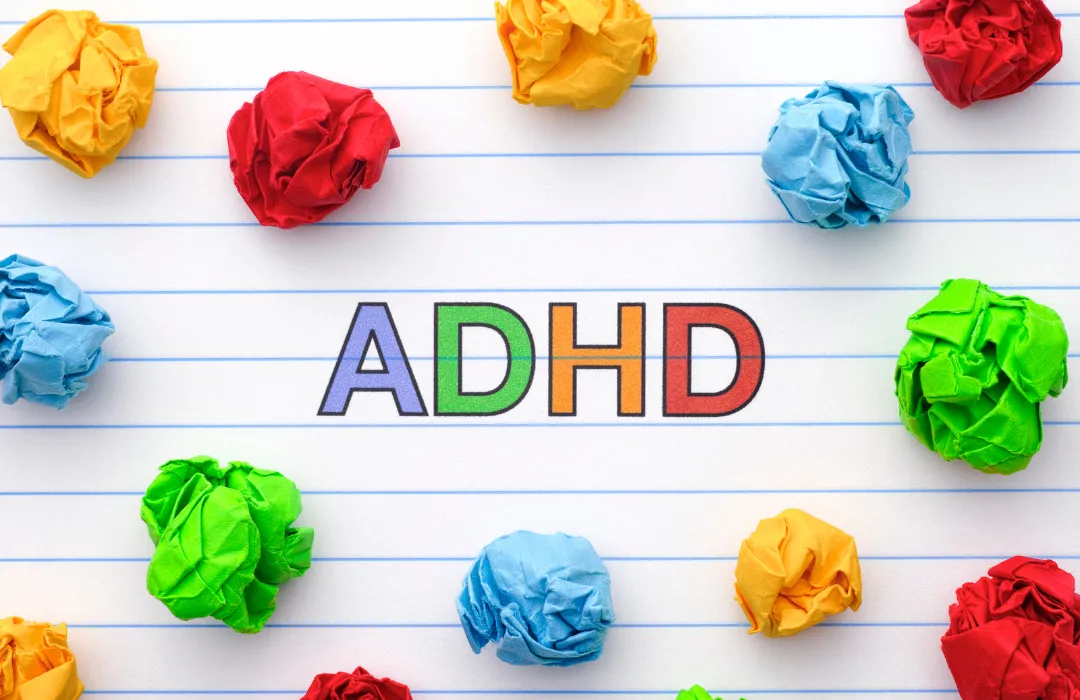
Forgetful, Foggy, and Overwhelmed? It Could Be ADHD
Drifting Through the Day? It Might Be More Than Stress
Do you find yourself drifting through your day—mentally fuzzy, missing appointments, or easily distracted even when you’re trying to focus? Maybe your mind feels wrapped in cotton wool, small tasks feel overwhelming, and despite doing all the “right” self-care, your to-do list only grows longer.
It’s easy to blame stress, anxiety, or burnout. But sometimes, these symptoms point to a frequently overlooked condition: adult inattentive-type ADHD.

What Is Inattentive-Type ADHD?
Unlike the classic image of hyperactive, impulsive children, inattentive ADHD in adults often looks quieter—and trickier to spot. It may show up as scattered attention, forgetfulness, procrastination, chronic disorganization, or difficulty sustaining effort.
Because these symptoms overlap with anxiety, depression, and overwhelm, inattentive ADHD often flies under the radar. But beneath the surface, the brain is functioning differently.
Common Signs You Might Be Missing
Persistent brain fog and forgetfulness: Details slip away even after a full night’s sleep.
Chronic distraction: Not just from noise or technology, but from a wandering, unfocused mind.
Procrastination: Starting tasks feels paralyzing—not from fear, but because your brain can’t “switch on.”
Frequent forgetfulness: Missed appointments, misplaced items, or zoning out mid-conversation.
Why It’s Often Misdiagnosed
Adults with inattentive ADHD—especially women—are often diagnosed with anxiety, depression, or stress instead. Because they don’t display stereotypical hyperactive behaviors, their struggles can appear invisible.
Instead, they quietly deal with emotional exhaustion, fatigue, and overwhelm. When the real root cause goes unrecognized, it’s easy to feel stuck or ashamed—especially when traditional therapies or medications don’t seem to help.
What’s Happening Beneath the Surface
At its core, inattentive ADHD involves executive dysfunction—difficulty organizing, prioritizing, and following through.
In many cases, neurotransmitters like dopamine and norepinephrine are dysregulated in parts of the brain that control focus, motivation, and impulse regulation. This creates the frustrating experience of knowing what needs to be done but feeling unable to do it consistently.
A Functional Medicine Approach
Medication can be a powerful and helpful part of treatment—but in functional medicine, we look deeper to understand why these imbalances exist and how to support the brain and body as a whole.
Here’s what that looks like in practice:
1. Functional Testing
Nutrient testing: Identifies deficiencies in iron, zinc, magnesium, omega-3s, and B vitamins—all crucial for neurotransmitter balance.
Blood sugar and insulin testing: Unstable glucose levels can worsen distraction and fatigue.
Comprehensive stool or microbiome testing: Gut inflammation can alter brain chemistry and worsen cognitive symptoms.
Hormone panels: Evaluate thyroid, adrenal, and sex hormone balance when symptoms overlap.
2. Nutrition for Focus and Clarity
Steady blood sugar = steady focus. Prioritize a protein-rich breakfast and balanced meals to avoid energy crashes.
Boost omega-3s. Found in salmon, chia seeds, and flax, they support brain cell function and communication.
Replenish minerals. Iron, zinc, and magnesium support mood, cognition, and focus.
Consider elimination diets (when appropriate). Certain foods—like gluten or dairy—may increase inflammation and brain fog in some people.
3. Lifestyle and Brain-Supportive Habits
Prioritize sleep. Consistent, restorative rest helps reset attention and emotional balance.
Move often. Exercise boosts dopamine and norepinephrine, naturally improving focus and mood.
Practice mindfulness or breathwork. These calm the nervous system and reduce overstimulation.
Get outside. Nature exposure supports attention restoration and reduces mental fatigue.
4. Therapeutic Supports
CBT for ADHD: Helps reframe self-criticism, strengthen focus, and improve follow-through.
ADHD coaching: Offers practical tools for organization, accountability, and structure.
Executive function strategies: Timers, visual cues, and task chunking can reduce mental load and improve productivity.
5. Medication (When Needed)
For many adults, stimulant or non-stimulant medications are an important part of treatment. A functional medicine approach doesn’t replace these tools—it works alongside them to optimize overall health, brain chemistry, and energy balance.
The Bottom Line
Inattentive ADHD is not a lack of motivation, intelligence, or discipline. It’s a neurocognitive condition with clear biological underpinnings.
Once identified and treated through a whole-person approach, it’s possible to move from fog to focus, from distraction to clarity, and from overwhelm to control.
If you’ve been struggling with focus, forgetfulness, or mental fatigue despite your best efforts, it may be time to look deeper.
Schedule a no-cost consultation to explore how functional medicine can help you restore clarity and focus from the inside out.

References
American Psychiatric Association. (2013). Diagnostic and statistical manual of mental disorders (5th ed.). Arlington, VA: American Psychiatric Publishing.
Kessler, R. C., Adler, L., Ames, M., Demler, O., Faraone, S., Hiripi, E., ... & Walters, E. E. (2005). The prevalence and correlates of adult ADHD in the United States: Results from the National Comorbidity Survey Replication. American Journal of Psychiatry, 162(4), 716–723.
Ramsay, J. R., & Rostain, A. L. (2015). The adult ADHD toolkit: Using CBT to facilitate coping inside and out. Routledge.
Wigal, T. L., Gupta, S., Heverin, E., & Stehli, A. (2022). Efficacy of viloxazine extended-release capsules in adults with ADHD: A randomized, double-blind, placebo-controlled trial. Journal of Attention Disorders, 26(10), 1345–1354.
Sibley, M. H., Kuriyan, A. B., Evans, S. W., Waxmonsky, J. G., & Smith, B. H. (2014). Pharmacological and psychosocial treatments for adolescents with ADHD: An evidence-based review. Journal of Clinical Child & Adolescent Psychology, 43(4), 527–551.
